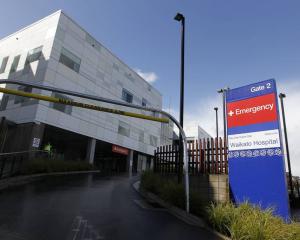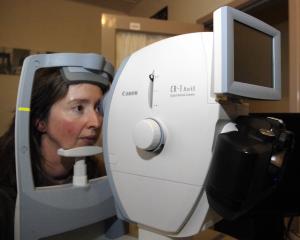Victor Billot has some bright ideas on how to make the public health system pay its way.
I was interested to read the hard-headed realism of Dr Mathew Zacharias in his opinion piece on how equality is getting in the way of patient rights (ODT, 1.2.10).
But I believe he is going the wrong way to achieve his goals by talking about "rights" and "equality" when it comes to his support for the right to buy preferential treatment in a public hospital.
It just confuses matters for the average punter.
I have prepared a modest proposal for the Otago District Health Board.
They could sell the concept (it's a commercial proposition, of course) to a population who have shown themselves somewhat resistant to the "user pays" virus, if you'll excuse the analogy.
The basic mission statement is to "put customers with cash at the top of the queue".
First, we need a snappy slogan: "We can see you right away, if you've got the bucks to pay."
The advantage here is this cuts to the chase and avoids any potential misunderstandings about the nature of the contract on offer.
On first admission to hospital, the customer who arrives for treatment is directed to triage.
A high-tech body scanner identifies symptoms and allocates customers into three new categories: (A) Broke, (B) Anxious and barely solvent, and (C) Seriously flush.
These are technically economic terms, not medical ones.
Customers suffering from "Broke" are immediately directed to the "recovery area" which is to be found in the underground car park.
Facilities include a drinks machine and the ex-customers are left to recover for at least an hour before being moved along by security guards.
Waiting lists are eliminated, as there is nothing to wait for.
Next in line, category two.
Customers suffering from being barely solvent are encouraged to take a deep breath and stand on their own two feet.
An analysis is made of the customer's condition by highly trained specialists, many of whom study for years in accountancy.
Mortgage, super funds, bank accounts, all would be carefully examined.
Family are involved in the process as they might be able to serve as "donors".
Eventually, a decision is made on whether the barely solvent customer is worth operating on (literally).
The customer is then re-allocated to "Broke" category (see above) or offered a "Premium Economy Class" upgrade package with a standby option.
Finance is available to these borderline cases through Australian-owned Health Insurance Providers (HIPs) who will provide bedside auctions for the most competitive time payment options.
This transaction is known as a HIP Operation (or Hippo).
Under the plan, you can even get HIP Operations for hip operations.
Actually, you won't get a hip operation unless you have a HIP Operation.
Just sign on the dotted line, please.
This is an example of the potential for private partnerships in the public health system, or public partnerships in the private health system; we don't care what you call it as long as you can front up with the readies.
Which brings us, finally, to category three.
Customers who are "Seriously flush" are wheeled immediately into fur-lined elevator to pre-op on the 10th floor upon presentation of a valid credit card.
Mood lighting, relaxing music and the best in 21st-century care await.
This system is clear, straightforward and avoids any unfortunate and embarrassing scenes with the families of customers who are unable to finance their treatment in a public hospital.
Obviously, this is an ambitious and bold vision to develop free choice and individual rights.
It may take some time to work towards, but the possibilities are endless.
Finally, I am hoping that I can sell this proposal for a reasonable sum.
Otherwise there's no way I'm ever going to be able to afford to pay for my right to medical treatment in a public hospital.
Victor Billot lives in Dunedin and is a supporter of the public health system.











